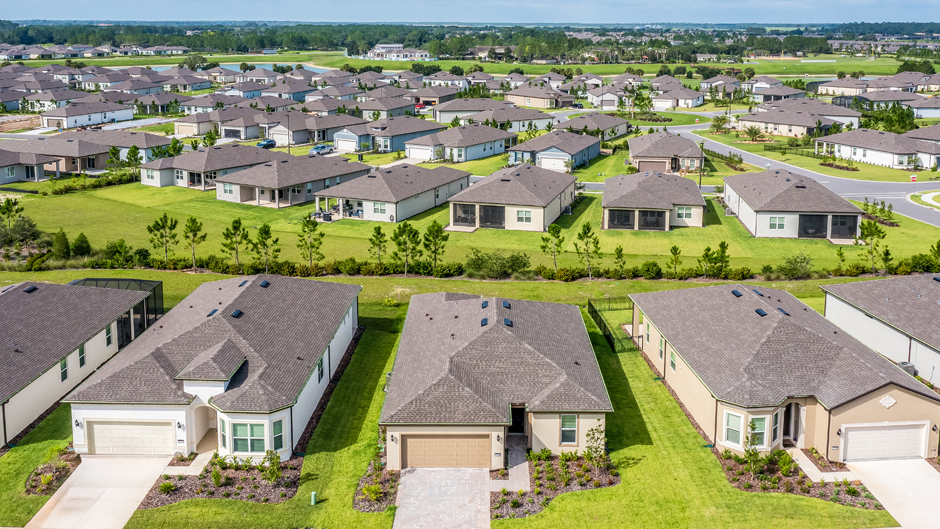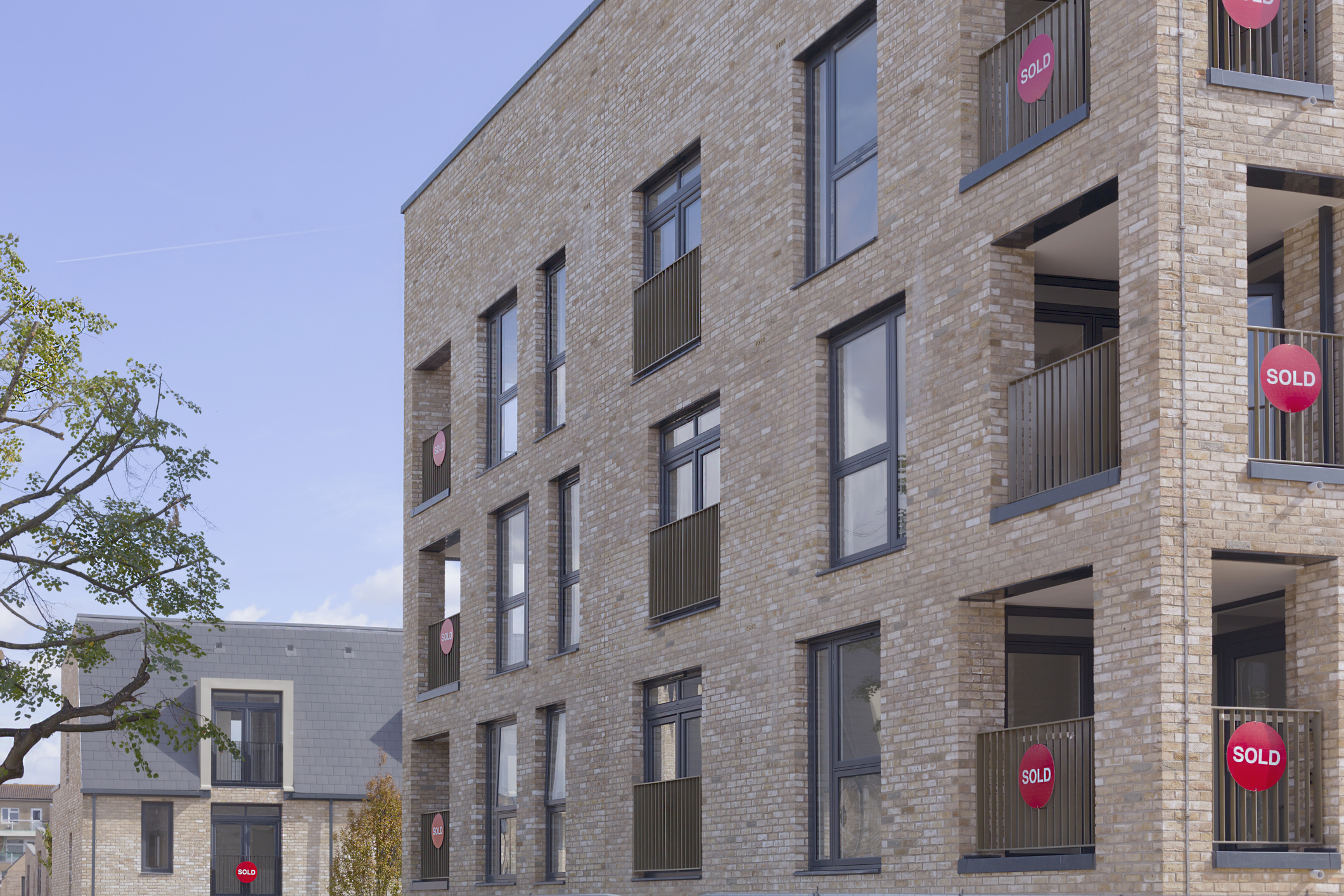Miami-Dade house prices soar to record, as sales plunge
Home prices increased in April throughout South Florida, breaking a record for single-family homes in Miami-Dade, according to data from the Miami Association of Realtors. Above is an aerial view of North Bay Village on Nov. 11, 2022.
Home prices hit a record in Miami-Dade County last month, despite 12 consecutive months of double-digit declines in sales activity.
The figures point to a wildly imbalanced residential real estate market, experts said, one in which many local buyers still can’t afford to buy homes.
The median price for single-family houses in Miami-Dade reached $600,000 in April, up from $565,000 a year ago and surpassed the former record median of $579,000 in June 2022, according to the housing market update released Thursday by the Miami Association of Realtors. In neighboring Broward County, the single-family home midpoint price rose to $575,000 from $560,000 in April 2022, while home sales plunged for 14 straight months.
Click to resize
“It is not a healthy market. It is not balanced. It is a market that is still a seller’s market,” said Kim Henderson, an aspiring homeowner and CEO of Neighborhood Housing Services of South Florida, a community development group assisting people to attain homeownership. “We need the inventory freed up. There’s not much inventory in the attainable price range, around $450,000 to $600,000. For the basic middle class person, there’s not a lot of inventory.”
The two counties condominium markets saw the same upward pricing trend. Miami-Dade reported an April median of $414,900, higher than $390,000 a year ago, while the median in Broward increased to $270,000, from $245,000.
Meanwhile, April home sales fell steeply in both counties. Miami-Dade posted 2,222 total sales last month, down 35.5% from 3,445 closings a year ago. Broward saw a 31.4% annual drop, to 3,489 from 4,006 closings a year ago.
Many aspiring buyers wonder if and when they can expect home prices in South Florida to fade. Real estate experts predicted a dip in condo prices later this year, to go along with the sales slowdown. However, the market’s slim number of available homes is expected to enable sellers to keep the upper hand. Investors, newcomers from across the country and cash buyers also continue to prop up home prices.
The regional housing supply remains another stark indicator of the imbalanced housing landscape. Miami-Dade has 3.3 months of houses and 4.9 months of condos available, but a balanced market consists of six to nine months of inventory. Broward has 2.5 months of houses and 3.3 months of condos.
Blame the tight supply on corporate expansions, digital nomads and the continued stream of transplants, said Tingyu Zhou, a professor of real estate at Florida Atlantic University. Many have chosen to call South Florida home during the pandemic that emerged in March 2020. They jump on the trend of remote work, trading high-tax states — like New York, Massachusetts and Connecticut — for the warm climate, loose COVID-19 public health rules and zero Florida and local income taxes.
The migration here has slowed since early in the pandemic, but outside buyers offering cash deals or offers above asking prices on homes still have a profound effect on the regional housing market.
In South Florida, close to half of the home deals closed in cash in April. In Broward, 42.4% of sales last month were handled in cash. In Miami-Dade, 37.9% of all home transactions were done without financing. The U.S. average in April was 28% cash home sales.
Overall, the housing market still confounds would-be buyers and renters.
Henderson started house hunting in January 2022. Since then, she’s made 10 offers and gotten beaten by competitors every single time. Usually, it’s investors, out-of-towners making cash purchases or bidders up to $100,000 over list prices. Many of her clients face similar conditions.
“Other people’s money can shove you out of your neighborhood and city,” Henderson said, recalling the same trend in Washington, D.C., where she lived and worked until 2018.
“If you want to stay, you’ve got to buy. You have to find a way to purchase a property, so you can live in the community of your choice. There’s a transformation going on. It’s heartbreaking when people say, ‘I’d like to stay and be near my mother and my abuela, but I can’t.’”
Mortgage rates are part of the problem. They tumbled to 2.65% on a fixed 30-year mortgage in January 2021, according to Freddie Mac data. Many aspiring buyers rushed to buy and homeowners refinanced.
Today, however, Freddie Mac reports a 6.39% rate for a 30-year, fixed-rate mortgage, compared to 5.25% a year ago.
South Miami resident Kyle Payne moved eight months ago from Philadelphia, the nation’s fifth-largest city, and considers Miami’s housing market far more expensive than he expected. Payne, 30, paid $900 in monthly rent for a one-bedroom apartment in Philadelphia. Now, he pays $2,850 a month for a one-bedroom apartment he rents with his girlfriend.
“I got denied originally for two different spots and they each charged a $600 [rental] application,” Payne said of the nonrefundable $1,200 he spent during his home search. “After getting denied for the second spot, my girl and I said we’re not going to force it. We had thoughts of giving up.”
Payne has spent several years working as a DJ and event producer and he wanted to live in Midtown to be closer to Miami’s nightlife hot spots. The competitive housing market to buy or rent has not allowed that. When his lease expires in September, Payne hopes to move to Midtown or nearby.
Real estate experts said they see hope for waiting buyers that prices could at least stabilize. More U.S. bank failures and new Florida legislation are expected to lead to a further slowdown in home sales around the country and possibly price dips here, at least in certain pockets of Miami-Dade.
Earlier this month, Gov. Ron DeSantis signed into law bill SB 264, which limits the property buying power in Florida of citizens from Russia, China, North Korea, Syria, Iran, Cuba and Venezuela. Neighborhoods in Miami-Dade shaped by these international communities, such as Sunny Isles Beach by Russians and Doral with Venezuelans, are expected to have more home inventory, less demand and maybe cheaper pricing.
“I am cautiously optimistic about this new measure,” said Henderson of Neighborhood Housing Services. “My worries are that the most pressing factors defeating low- and moderate-income buyers is the … [out-of-state] buyers and heavy presence of institutional buyers of single-family homes.”


